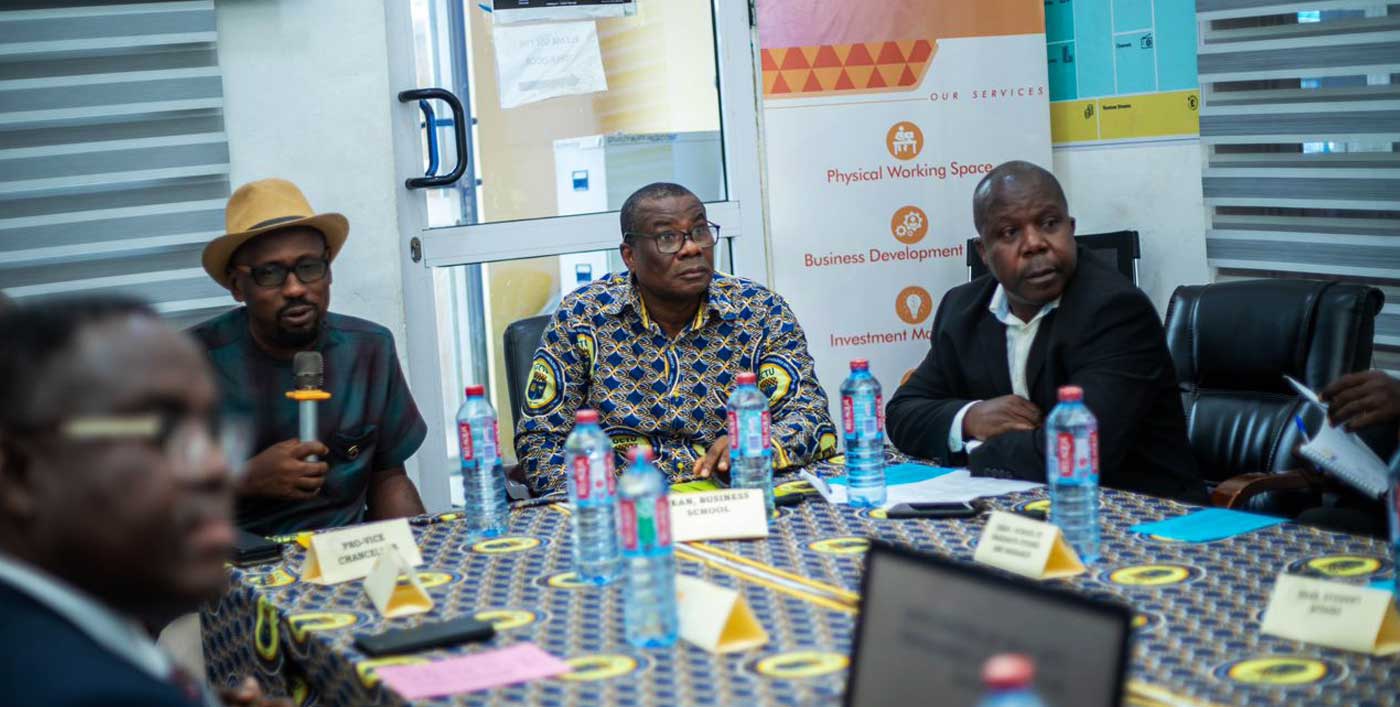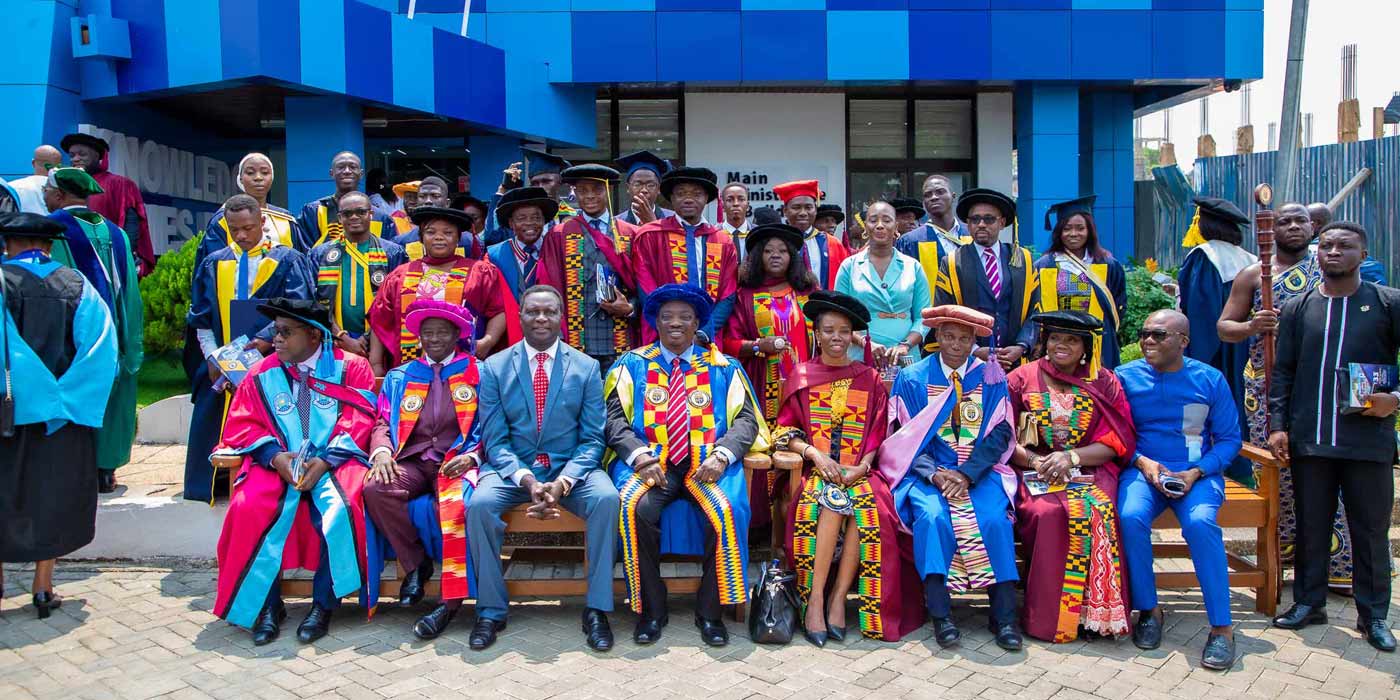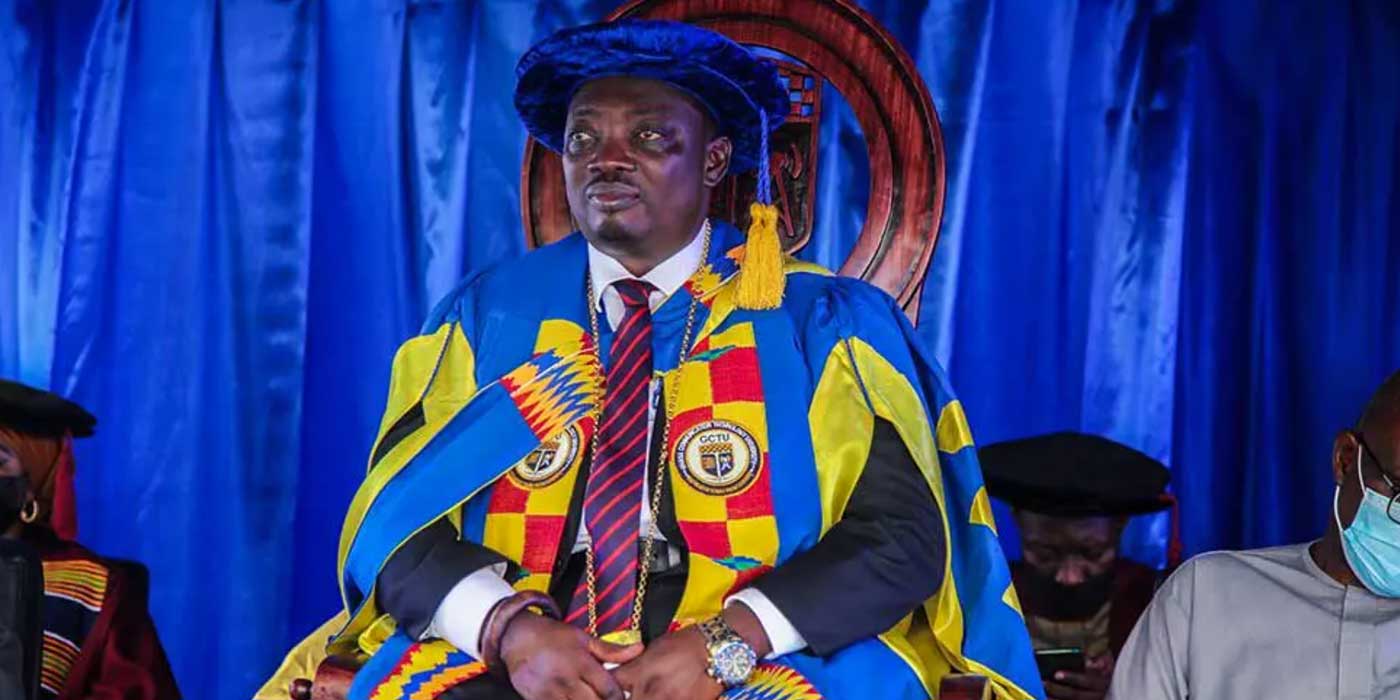
The Ghana Communication Technology University Business School (GCTU Business School) is undertaking a medium-term strategic focus to introduce new cutting-edge programmes as part of the rebranding and repositioning Business Education in Ghana.
It was to help students to improve their knowledge to meet the requirements of the job market.
The new programmes are PhD in Economics with Informatics, PhD in procurement management with Analytics, PhD in Digital Marketing and Innovation, PhD in Human Resource management with Informatics, and PhD in Accounting and Financial Technology.
The rest are BSc Administration (E-Commerce & Marketing Management), BSc Financial Technology, Enhanced student experience, Academic-Industry-Government partnership and collaboration, Promotion of knowledge, and Strengthen the Business Hub (B-hub).
Professor Oppong Appiagyei Ampong, the Dean of the GCTU Business School made this known at a roundtable conference which was organised by the school and participated by representatives from the banking and business sectors of the economy.

The conference was on the theme: “Expectation of Skills Set for Business Graduates in Ghana” and was aimed at sharing perspectives on job skill demands of business graduates, augment curriculum development and reviews; and the promotion of networking and collaboration.
Prof Ampong said the institution was founded in 2009 and in line with the university’s mandate, the school was enjoined to produce graduates based on a cutting-edge top-notch business programme.
He said currently the school was offering programmes in the areas of accounting; banking and finance, management, human resource management; marketing; economics, procurement and logistics at diploma, degree and postgraduate levels.
He said: “We are moving into the current age, and we want to catch up with the dynamics of the world and therefore we are coming up with new programmes which our research has shown us, so we want to strengthen academic/industry partnership.
“We want to enhance students experience and I hope industry will partner us to run as much career development programmes for students to prepare them for the job markets,” he stated.
Prof Robert Ebo Hinson, the Pro Vice-Chancellor of the GCTU and the moderator of the conference said now universities around the world do not train students based on what lectures think.
“All forward looking universities now look into the markets to get a fine sense of what the market is looking for and then use that feedback to create business minded persons to help grow the economy,” he stated.
The participants in their contributions noted some of the challenges faced by graduates on the job markets as lack of practical knowledge and competency and therefore urged the universities to take internship activities very seriously.
They said: “It is either the universities, which are not concentrating much in monitoring graduates in the various institutions that they undertake the internship or the students themselves are not serious because some of them do not appear or show up at the workplace.”
The participants said apart from the school building the competencies, knowledge, and skills they should also shape their attitude and behaviour towards work ethnics wherever they found themselves.
“Students while in school should visit websites of institutions that they envisaged to work with so they could gather information on their core values, vision and mission while knowing the current development taking place in such institutions,” they stated.
Mr Godwin Utuka, Director, Quality Assurance and Promotion, GCTU said industry players inputs into the programmes of the Business School was key to producing graduates that would meet their demands as end users of the product.

“All that we are doing here if you do not absorb our students then we did not need to be in this business. Your contributions have huge impact on our programmes that we are developing now, and we expect that we take your input seriously and improve upon them,” he stated.








